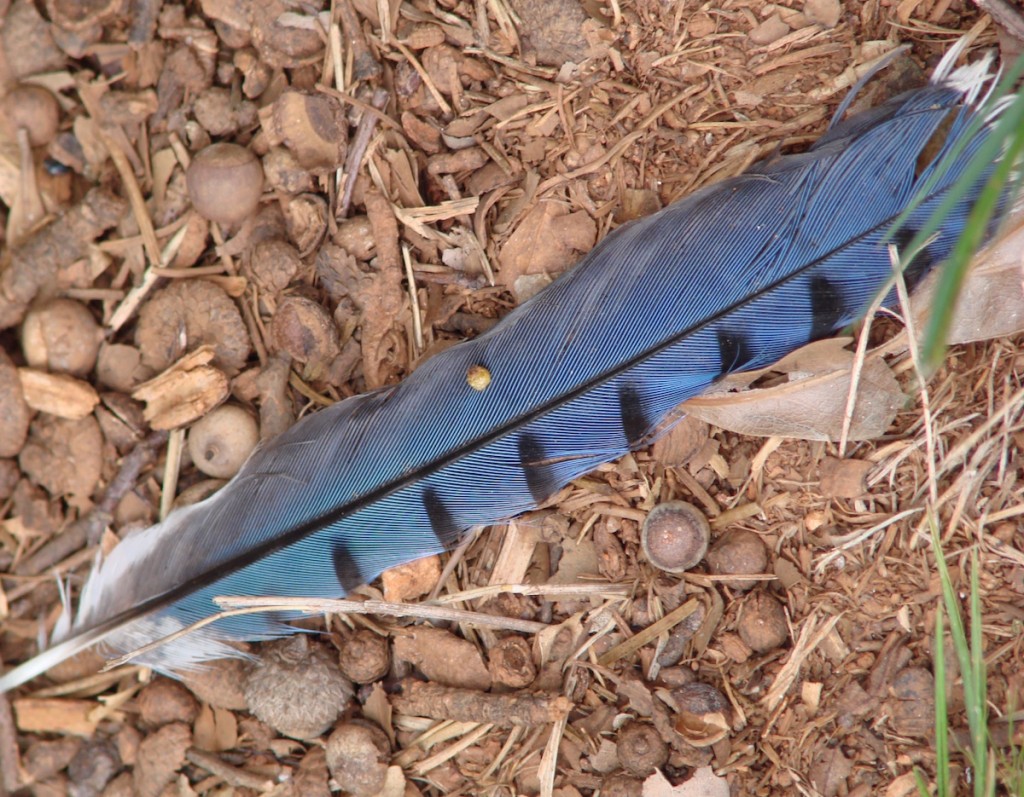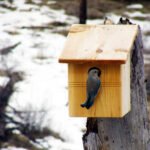
You may have heard the urban legend. One day a guy is hiking along a trail and he spots a gorgeous-looking feather on the ground. He picks it up and carries it around in his hand, looking at it with wonder and curiosity. That’s when he’s arrested and fined $100,000 for possessing a feather illegally.
Sounds preposterous right?
Wrong. While the details of the urban legend may be exaggerated, it is in fact illegal to collect certain bird feathers thanks to the Migratory Bird Treaty Act of 1918.
The nearly 100-year-old act was put into place to protect birds that migrated between the United States and Canada because of a decline in bird populations. Hunting was fairly rampant because the fashion during that time featured hats adorned with bird feathers.
The treaty makes it unlawful to hunt, take, capture, kill, or sell migratory birds. The statute extends to any bird part, including feathers, eggs, and nests.
It seems harmless to pick up a nest or feathers you find on the ground, but it’s against the law because it’s difficult for enforcement officers to figure out whether it was obtained through ignominious or accidental means. So they put the burden on the carrier of the feather and took away the question.
More than 800 species are currently on the list, including the Bald Eagle, Black-capped Chickadee, Northern Cardinal, American Crow, Canada Goose, Mourning Dove, Barn Swallow, Cedar Waxwing, Barn Owl, and more. That means the feathers of all of these birds are forbidden.
An exemption to the act does exist, however. The Eagle Feather Law allows the collection of Golden Eagle and Bald Eagle feathers for religious purposes by Native Americans. In order to quality, individuals must have certifiable ancestry and be enrolled in a tribe.
 Despite sounding a tad ridiculous these days, the roots of the law are sound and still serve a purpose.
Despite sounding a tad ridiculous these days, the roots of the law are sound and still serve a purpose.
You might also be asking yourself what about the bird feathers you see at stores.
Since certain species aren’t protected under the Migratory Bird Treaty Act, picking up and possessing their feathers is perfectly legal. That means nonnative species like House Sparrows and European Starlings aren’t covered, along with nonmigratory birds like turkeys, chickens, Mute Swans, quails, and the like.
So the next time you see a bird feather on the ground, you’d better be sure it’s from an invasive species or nonmigratory bird or leave it alone.



189 Comments
It is a stupid law and will be ignored by this fly tier! I will pay no money for feathers brought to me by friends, nor will I ever harm any bird to get the feathers! Make the illegal harvesting consequences more severe than they are! Very simple solution! They think in this day and age there is going be some huge black market and millions made on chikadee feathers. Fucking morons!
I live in rural Missouri farmland. We have all sorts of raptors here including Bald Eagles. I own hundreds of acres and come across Bald Eagle feathers all the time. I do pick them up as well as whitetail deer shed antlers. They are on my property and according to the law , every rock, twig, blade of grass and scoop of dirt belongs to me. I’ve never heard of anyone calling a state agent to surrender found animal parts. It really is absurd . My property is mine. If a meteorite landed in my field, it literally becomes my meteorite, just as all rainwater that falls on my head and wets me becomes a part of me.
I live in rural Missouri farmland. We have all sorts of raptors here including Bald Eagles. I own hundreds of acres and come across Bald Eagle feathers all the time. I do pick them up as well as whitetail deer shed antlers. They are on my property and according to the law , every rock, twig, blade of grass and scoop of dirt belongs to me. I’ve never heard of anyone calling a state agent to surrender found animal parts. It really is absurd . My property is mine. If a meteorite landed in my field, it literally becomes my meteorite, just as all rainwater that falls on my head and wets me becomes a part of me.